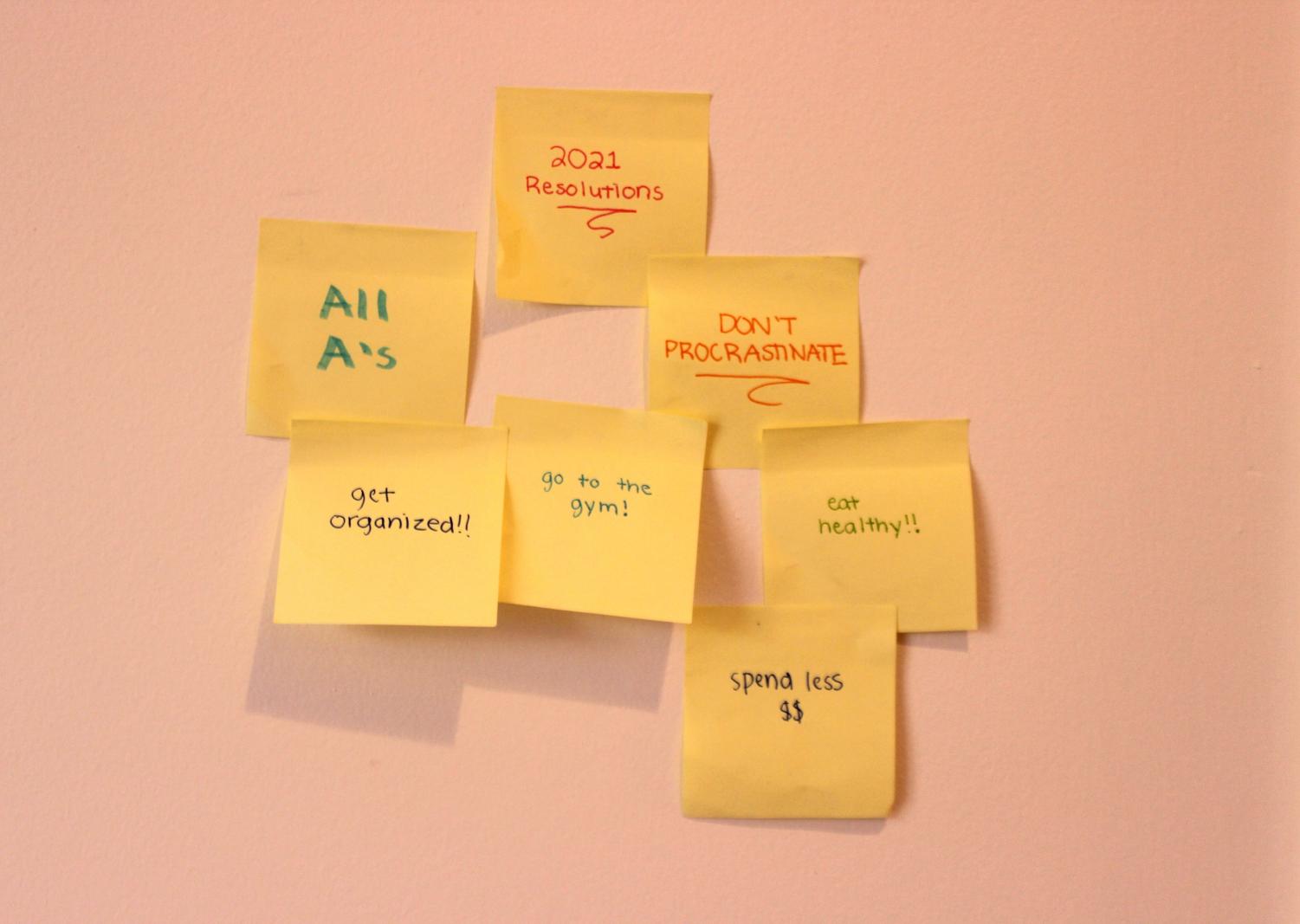“I should get a gym membership,” the classic New Year’s resolution, crippled by pandemic restrictions and safety precautions. An inspection of a society’s New Year’s resolutions can expose so much more, especially in a year in which society was turned upside down. Through politics and pandemics, tradition remains strong; The resolutions themselves, however, have shifted.
2020 was a year that spun out of control and forced everyone to adapt. Closures of communal spaces, as well as the staggering job loss in America not only halted, but actively impeded upon common resolutions such as saving money, working out or eating healthier.
Due to the reversal of these former, healthier lifestyles, goals seem to be reaching the state we were in pre-pandemic. Common resolutions among Yorktown students mostly consisted of things which were essential to daily life before COVID-19 struck. Among those included reaching out to friends more, or even leaving the house more often.
Another common resolution was to decrease ‘screen time,’ which correlates with an NIH study indicating that 68% of participants’ time looking at electronic screens increased significantly over the pandemic.
Yet another shift in New Year’s resolutions comes not from the subject of the resolutions, but rather the regularity of them. While on New Year’s in 1985, more than 75% of Americans made resolutions, only 45% of Americans reported doing so in 2020. While there is no concrete explanation as to why faith in this time honored tradition is dwindling, it may be because only 10% of New Year’s resolutions are achieved.
Experts note that New Year’s resolutions fail so often because the typical approach to New Year’s resolutions are set up for failure from the start. Resolutions are often what “ought to be done” rather than concrete achievable goals. Because of this, goals seem overwhelming to many, and rather than adjusting the goal, they give up completely.
Dr. Susan Weinschenk, an adjunct professor at the University of Wisconsin, believes that can be changed. She believes that a mindset readjustment going into the resolution is crucial to its success.
“The best … way to get a large and long-term behavior change, is by changing your self-story. Everyone has stories about themselves that drive their behavior. You have an idea of who you are and what’s important to you…. You have a “story” operating about yourself at all times. These self-stories have a powerful influence on decisions and actions,” Weinschenk wrote in a 2016 article.
In addition, she notes that when setting goals, picking small incremental actions as a foundation for your resolution will drastically improve chances of success.
While 2021 may register a drastic shift in New Year’s resolutions, resolutions are likely to stand, as they have for millenia. New Year’s resolutions as a history date back to Julius Caesar’s creation of the 12-month calendar. To honor Janus, the god of beginnings and endings, transitions, and time itself, the Romans offered promises of embetterment in the time god’s month of January. 2,021 years later our school’s students are still partaking in this tradition, as old as the new year itself.







































